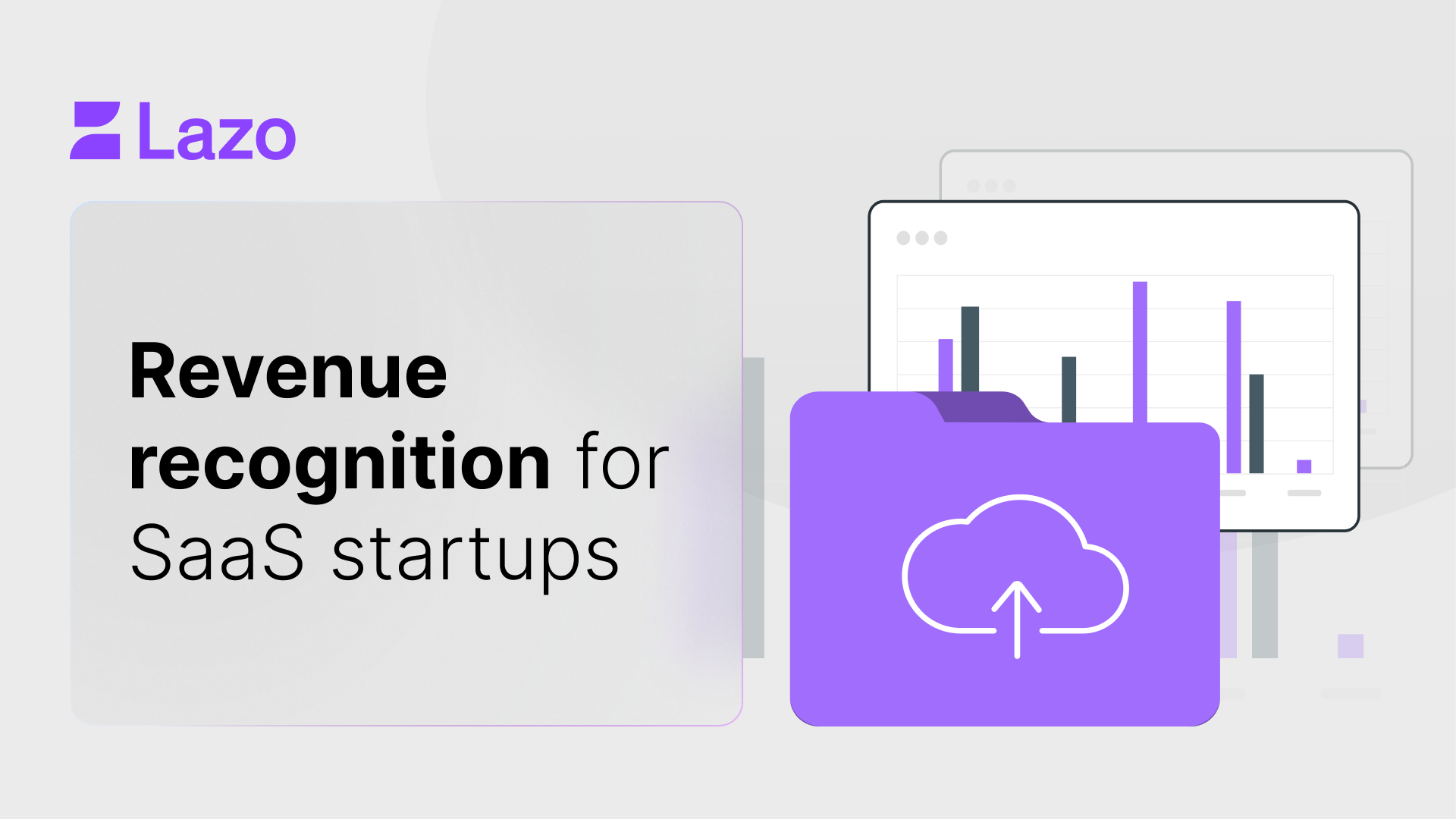For SaaS (Software as a Service) startups, accurately recognizing revenue isn't just about good accounting; it's a cornerstone of financial health, investor relations, and sustainable startup growth. Unlike traditional businesses that might sell a physical product once, SaaS operates on subscriptions, free trials, usage-based models, and bundled services, making revenue recognition a complex, yet critical, process.
This guide will demystify revenue recognition for SaaS, highlighting best practices and common pitfalls to ensure your bookkeeping is impeccable and your financial records truly reflect your company's performance.
💰 Why revenue recognition is crucial for SaaS startups
Accurate revenue recognition provides a clear and honest picture of your company's performance, which is vital for several reasons:
- Investor confidence: Investors scrutinize revenue figures. Consistent and compliant revenue recognition builds trust and demonstrates financial discipline, making your startup more attractive for fundraising. Misstated revenue can be a significant "red flag" during due diligence.
- Strategic decision-making: Understanding when and how much revenue you’ve truly earned enables better decisions on pricing, product development, hiring, and budget & forecasting.
- Compliance: Adhering to accounting standards like ASC 606 (U.S. GAAP) or IFRS 15 is mandatory. Non-compliance can lead to audits, penalties, and reputational damage.
- Valuation: Your valuation is heavily influenced by your revenue multiples. Accurate revenue recognition ensures your company is being valued correctly.
📝 Understanding ASC 606 and its 5 steps for SaaS
The core standard for revenue recognition is ASC 606 (and IFRS 15 internationally). It outlines a five-step model that must be applied to every customer contract:
- Identify the contract with a customer: This involves ensuring a legally enforceable agreement exists, detailing payment terms and services.
- Identify the performance obligations in the contract: For SaaS, this often includes software access, customer support, potential implementation services, or future updates. Each distinct promise is a performance obligation.
- Determine the transaction price: This is the total consideration the entity expects to receive, adjusted for variable considerations (e.g., discounts, refunds).
- Allocate the transaction price to the performance obligations: If a contract has multiple obligations (e.g., software license + implementation), the total price must be allocated based on their standalone selling prices.
- Recognize revenue when (or as) the entity satisfies a performance obligation: This is where SaaS differs significantly. Revenue from software access is typically recognized over time (e.g., monthly for a subscription). Implementation services might be recognized at a point in time or over time depending on the nature of the service.
⚠️ Common pitfalls in SaaS revenue recognition
Even with standards in place, SaaS companies often stumble on specific challenges:
- Bundled services confusion: Offering a software subscription, professional services (onboarding, customization), and ongoing support as a single package can make allocation difficult. Failing to correctly separate and value each performance obligation is a frequent error.
- Variable consideration misjudgment: Discounts, refunds, usage-based fees, or performance bonuses can introduce variability. Incorrectly estimating or accounting for these can distort revenue.
- Incorrect timing of recognition: Recognizing all annual subscription revenue upfront instead of ratably over the subscription period is a classic mistake. Similarly, recognizing revenue for implementation services too early before the obligation is satisfied.
- Free trials and freemium models: Forgetting that revenue generally isn't recognized until a paying customer contract is established, or misjudging the point at which a "free" user converts to a paying one.
- Lack of robust systems: Relying on spreadsheets instead of a proper accounting system or bookkeeping platform can lead to manual errors, inconsistencies, and difficulty in scaling operations. This also hinders accurate financial record management.
- Neglecting deferred revenue: Not properly tracking and reporting deferred revenue (cash received for services not yet delivered) can lead to an overstatement of current period revenue and a misrepresentation of financial health.
✅ Best practices for accurate SaaS revenue recognition
To ensure your bookkeeping is investor-ready and your revenue recognition practices are sound, consider these best practices:
- Implement specialized accounting software: Utilize tools that are designed to handle recurring revenue and subscription models, or integrate your QuickBooks with specialized SaaS billing platforms. This automates complex calculations and reduces human error.
- Define performance obligations clearly: Ensure your contracts meticulously outline each distinct promise made to the customer. This helps in correctly allocating revenue.
- Regularly review contracts: As your business evolves, so do your service offerings. Periodically review new contract types to ensure consistent application of ASC 606.
- Master deferred revenue tracking: Your bookkeeping team should have robust systems to accurately track and reconcile deferred revenue. This is a critical liability on your balance sheet.
- Align sales and accounting: Ensure your sales team understands how their contract terms impact revenue recognition. Misaligned incentives or poorly structured deals can create accounting headaches.
- Seek expert guidance: Given the complexities, partnering with experienced professionals who understand SaaS accounting can save you from costly errors and ensure compliance.
Accurate revenue recognition is more than just a compliance task; it's a strategic imperative for any SaaS startup. By adopting best practices and avoiding common pitfalls, you'll build a strong foundation for startup growth, maintain financial health, and inspire confidence in future investor relations.
How Lazo can boost your SaaS revenue recognition
Navigating the intricacies of SaaS revenue recognition can be overwhelming, especially when you're focused on building and growing your product. At Lazo, our experts specialize in providing hassle-free tax solutions and comprehensive bookkeeping for U.S. and international startups.
We understand the unique challenges of SaaS models and can help you implement best practices for ASC 606 compliance, ensuring your financial records are accurate, your financial health is transparent, and your company is always investor-ready.
Ready to streamline your SaaS accounting and ensure precise revenue recognition?

